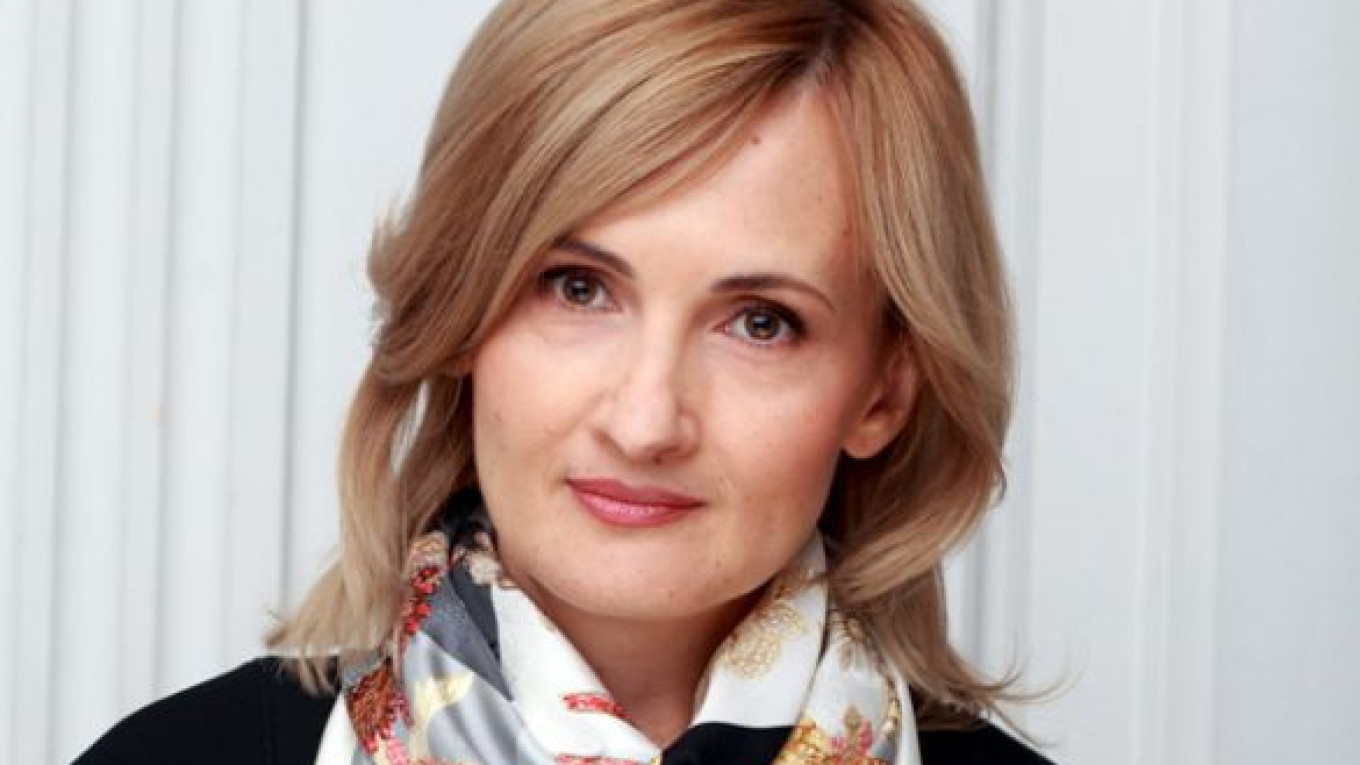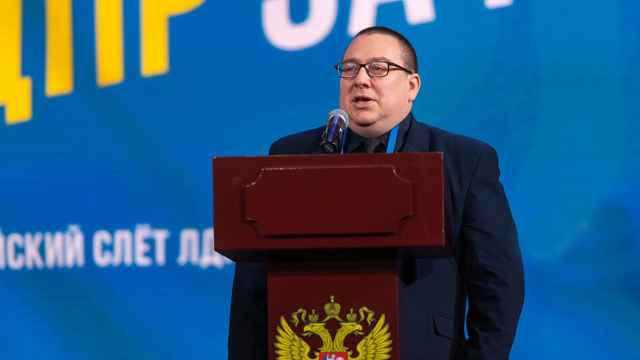Despite a barrage of criticism, senior United Russia officials are adamant that a bill labeling nongovernmental organizations that receive funding from abroad as "foreign agents" will be passed by the State Duma on Friday.
Irina Yarovaya, who chairs the lower house of parliament's security committee and heads the pro-Kremlin party's conservative wing, told reporters Thursday that the bill was fully in line with international democratic standards.
"Russia is a young democracy — we learn from various countries' experience. The law aims to protect the interests of civil society," she said at a RIA-Novosti roundtable.
The bill obliges NGOs that engage in political activity and receive foreign funding to register as "foreign agents" and display this label in all their publications. It also criminalizes violations of already stringent requirements for registering NGOs.
Critics say the bill is designed to punish pro-democracy groups by branding them traitors, as President Vladimir Putin has implied he thinks they are. During mass anti-government protests last year, Putin openly accused the U.S. State Department of financing NGOs that were allegedly plotting regime change.
Late Wednesday, the State Department criticized the bill as a threat to fundamental freedoms and human rights.
"The United States is deeply concerned by the Russian Duma's consideration of legislation that would potentially limit the activities of Russian nongovernmental organizations receiving foreign financing," State Department spokesman Patrick Ventrell said, according to a posted online.
Yarovaya insisted that the bill was an "instrument of openness" that threatens no one.
"Russians must be able to understand who in [the country] does political work paid with foreign money. That's a standard of international democracy," she said.
But after last week's first reading of the bill, ruling party United Russia introduced a host of changes that will be debated in Friday's second and third readings, Duma Speaker Sergei Naryshkin told Interfax on Thursday. All 236 members of the party's Duma faction have signed their names to the bill as authors.
Experts said the changes only show that the bill was introduced clumsily and in haste.
If passed by the Duma as expected, the bill will need to be approved by the Federation Council, signed by Putin and published in state newspaper Rossiiskaya Gazeta to become law. The upper house's last plenary session before the summer break will be held Wednesday.
A key amendment set to be introduced is one exempting religious and charitable organizations, as well as organizations created by the state or state-owned companies.
Such a provision not only removes potential embarrassment for the Orthodox Church, which despite being a national icon receives donations from outside Russia, but also for RT, the state-financed English-language TV channel also known as Russia Today.
RT editor Margarita Simonyan admitted earlier this week that her channel would have to register as a foreign agent because it is officially registered as a nongovernmental organization.
"This is because we receive payments from Google and YouTube, which are U.S. companies," she said in an interview on Dozhd TV.
Branding RT a foreign agent inside Russia would be ironic given that the channel is intended as a news source presenting Moscow's views, which often diverge from those of Western powers, to a global audience.
Another provision of the bill, mandating a significant hike in fines for violations of the new rules, will be taken out and introduced in a separate bill to be heard this fall.
Under the planned regulations, failure to reveal foreign sponsors or to register as a "foreign agent" will be punishable by fines of up to 1 million rubles ($30,600), according to Yarovaya. The same fine can be imposed if an NGO publishes articles in its name without the "foreign agent" label, Yarovaya said.
Naryshkin promised that the updated version of the bill will include a clear definition of what constitutes political activity.
Critics expect this to be a crucial point for organizations hoping to avoid the potentially damaging label.
"Naturally, everybody will try to prove they are non-political," said Jens Siegert, who heads the Moscow office of the Boell Foundation, which is affiliated with Germany's Green party.
Siegert said he also believes that the planned legislation will only cover NGOs registered as autonomous organizations in Russia, as opposed to branch offices of foreign groups, and therefore won't affect his foundation directly. He added that this view was shared by other German organizations working in the country.
Meanwhile, the Duma's online database of was unavailable Thursday. A Duma spokesperson told Interfax that the site crashed because of a massive influx of traffic, amounting to "thousands of visits per minute."
The lower house of parliament is hearing a host of controversial bills this week, before lawmakers go into summer recess on Saturday. Among the bills under consideration is the reintroduction of drastic fines for libel and one that forces Internet providers to block sites with banned content.
A Message from The Moscow Times:
Dear readers,
We are facing unprecedented challenges. Russia's Prosecutor General's Office has designated The Moscow Times as an "undesirable" organization, criminalizing our work and putting our staff at risk of prosecution. This follows our earlier unjust labeling as a "foreign agent."
These actions are direct attempts to silence independent journalism in Russia. The authorities claim our work "discredits the decisions of the Russian leadership." We see things differently: we strive to provide accurate, unbiased reporting on Russia.
We, the journalists of The Moscow Times, refuse to be silenced. But to continue our work, we need your help.
Your support, no matter how small, makes a world of difference. If you can, please support us monthly starting from just $2. It's quick to set up, and every contribution makes a significant impact.
By supporting The Moscow Times, you're defending open, independent journalism in the face of repression. Thank you for standing with us.
Remind me later.







